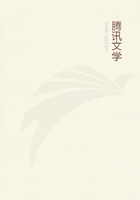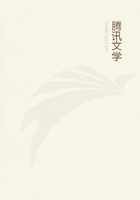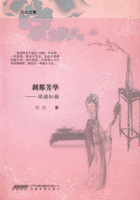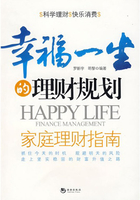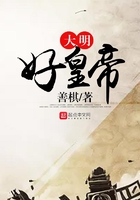In 1891, the Wellesley Chapter of the College Settlements Association was organized. It was Professor Katharine Lee Bates (Wellesley '80) who first suggested the plan for an intercollegiate organization, with chapters in the different colleges for women; and her friend Adaline Emerson (Thompson), a Wellesley graduate of the class of '80, was the first president of the association. Wellesley women have ever since taken a prominent part in the direction of the association's policy and in the active life of the settlement houses in New York, Boston, Philadelphia, and Baltimore. Wellesley has given presidents, secretaries, and many electors to the association itself, and head-workers and a continuous stream of efficient and devoted residents, not only to the four College Settlements, but to Social Settlement houses all over the country. The College Chapter keeps a special interest in the work of the Boston Settlement, Denison House; students give entertainments occasionally for the settlement neighbors, and help in many ways at Christmas time; but practical social service from undergraduates is not the ideal nor the desire of the College Settlements Association. It aims rather at the quickening of sympathy and intelligence on social questions, and the moral and financial support which the College Chapter can give its representatives out in the world.
Such by-products of the settlement interest as the Social Study Circle, an informal group of undergraduates and teachers which met for several years to study social questions, are worth much more to the movement than the immature efforts of undergraduates in directing settlement clubs and classes.
Already the historic perspective is sufficiently clear for us to realize that the College Settlement Movement is the unique, and perhaps the most important organized contribution of the women's colleges to civilization during their first half century of existence.
Through this movement, in which they have played so large a part, they have exerted an influence upon social thought and conscience exceeded, in this period, by few other agencies, religious, philanthropic or industrial, if we except the Trade-union Movement and Socialism, which emanate from the workers themselves. The prominent part which Wellesley has played in it will doubtless be increasingly understood and valued by her graduates.
IV.
Let it be frankly acknowledged: the ordinary adult is usually bored by the undergraduate periodical--even though he may, once upon a time, have edited it himself. The shades of the prison-house make a poor light for the Gothic print of adolescence. But the historian, if we may trust allegory, bears a torch. For him no chronicle, whether compiled by twelfth-century monk or twentieth-century collegian, can be too remote, too dull, to reflect the gleam. And some chronicles, like the Wellesley one, are more rewarding than others.
No one can turn over the pages of these fledgling journals, Courant, Prelude, Magazine, News, without being impressed by the unconscious clarity with which they reflect not merely the events in the college community--although they are unusually faithful and accurate recorders of events--but the college temper of mind, the range of ideas, the reaction to interests beyond the campus, the general trend of the intellectual and spiritual life.
The interest in social questions is to the fore astonishingly early. In Wellesley's first newspaper, the Courant, published in the college year 1888-1889, we find articles on the Working Girls of Boston, on the Single Tax, and notes of a prize essay on Child Labor. And throughout the decade of the '90's, the dominant note in the Prelude, 1889-1892, and its successor, the Wellesley Magazine, 1892-1911, is the social note. Reports of college events give prominent place to lectures on Woman Suffrage, Social Settlements, Christian Socialism. In 1893, William Clarke of the London Chronicle, a member of the Fabian Society, visiting America as a delegate to the Labor Congress in Chicago, gave lectures at Wellesley on "The Development of Socialism in England", "The Government of London", "The London Working Classes." Matthew Arnold's visit came too early to be recorded in the college paper, but he was perhaps the first of a notable list of distinguished Englishmen who have helped to quicken the interest of Wellesley students along social lines. Graham Wallas, Lowes-Dickinson, H. G. Wells, are a few of the names found in the pages of the Magazine and the News. The young editors evidently welcomed papers on social themes, such as "The Transition in the Industrial Status of Women, by Professor Coman"; and the great strikes of the decade, The Homestead Strike, the Pennsylvania Coal Strike, the New Bedford Strike, are written up as a matter of course. It is interesting to note that the paper on the Homestead Strike, with a plea for the unions, was written by an undergraduate, Mary K. Conyngton, who has since won for herself a reputation for research work in the Labor Bureau at Washington.
Political articles are only less prominent than social and industrial material. As early as 1893 we have an article on "The Triple Alliance" and in the Magazine of 1898 and 1899 there are papers on "The Colonial Expansion of the Great European Powers", "The Italian Riots of May, 1898", "The Philippine Question", "The Dreyfus Incident."
This preoccupation of young college women of the nineteenth century with modern industrial and political history is significant when we consider the part that woman has elected to play in politics and reform since the beginning of the twentieth century.

